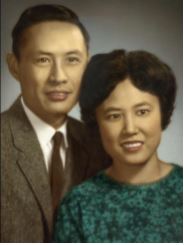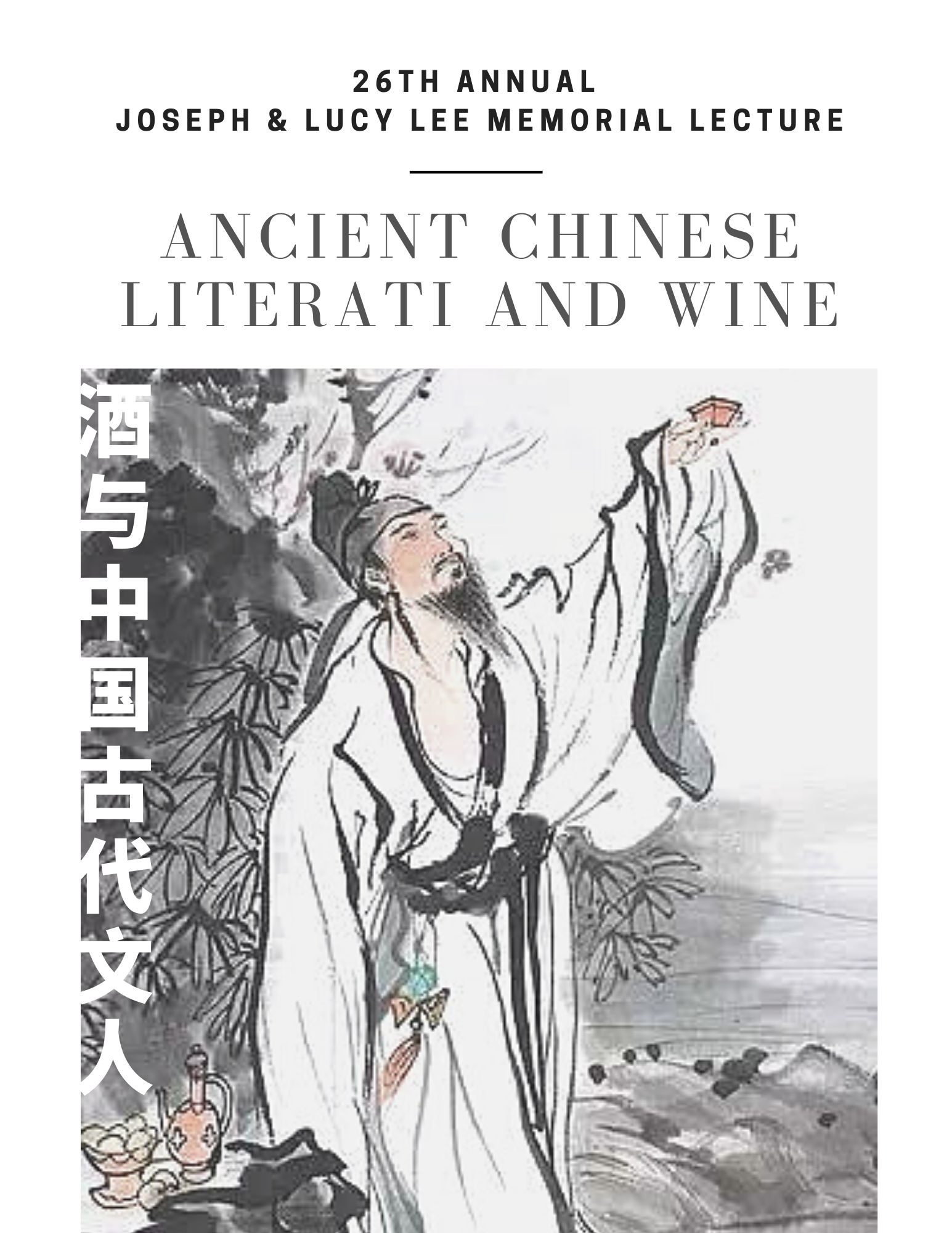
In 1939, two English versions of Jin Ping Mei were published: Clement Egerton’s The Golden Lotus, a “complete” translation, and Bernard Miall’s abridged version based on a German edition. Decades later, David Tod Roy produced a full English translation (The Plum in the Golden Vase, 1993–2013). Despite limited knowledge of Chinese, Egerton’s translation captured the spirit of the original and became widely influential, though it contains notable errors. Studying these errors helps us understand translation choices, cross-cultural publishing, and the impact of Golden Lotus in the English-speaking world.
Date: December 4, 2025, 6:30 - 8:30pm (International Center, 3rd Floor).
Speaker: Professor Xuanlong Zhou, professor of Chinese Language and Literature at Tsinghua University, specializing in Ming and Qing dynasty literature.
Welcome & Introduction: Dr. Siddharth Chandra, Director of the Asian Studies Center, Michigan State University
A special thank you to Jiahang Li (Outreach Coordinator at Asian Studies Center, Michigan State University) for providing English translation for this evening’s presentation.

The Joseph and Lucy Lee Memorial lecture series is an annual event in memory of Joseph Lee— Professor of Chinese Literature and Culture in the Department of Linguistics and Germanic, Slavic, Asian and African Languages at Michigan State University—and Lucy Lee, an alumna of Michigan State University and a steadfast supporter of MSU and the Asian Studies Center.
Joseph received his B.A. from the Chinese Naval Academy, and his M.A. and Ph.D. degrees from the University of Maryland. He joined the MSU faculty in 1963. Lee was a specialist in Tang and Song dynasty poetry. He published a number of books on poetry in Chinese, and served as an editor and contributing member of the Chinese national project on Tang literature. Later in his career, he became a member of the Chinese Association for the Study of Tang literature and an honorary professor in the Institute of Classical Studies at Peking University. He was also a devoted and valued member of the Asian Studies Center Core faculty.
Through her early life, Lucy endured many changes and challenges in China. She emigrated to the United States as a teenager, where she first attended St. Mary of the Springs College (now Ohio Dominican College), then the University of Maryland, and, finally, Michigan State University where she earned a Ph.D. in biochemistry. Over the ensuing 43 years, Lucy built a distinguished career conducting research on avian tumor viruses. Much of her work focused on Marek’s disease virus (MDV). Lucy produced numerous publications throughout her career and was known for her tenacious productivity.
Joseph and Lucy Lee married on October 2, 1954. They raised three children. In 1994, Lucy established the Joseph Lee Fund at Michigan State University with a generous endowment. From the beginning this has been a partnership with Peking University co-led by Professor An Pingqiu, Joseph Lee’s colleague, who selects and accompanies a distinguished speaker from China. Lectures have occurred yearly since October 1994, a time selected to coincide with Joseph’s birth month, which brings us together tonight.
The Shijing 詩經 (Book of Songs), the oldest collections of Chinese poetry, originated during the Zhou dynasty (1046–256 BC) and reflects the cultural practices of that time, including ritual, music, and expressions of intent through song. Over time, it became a cornerstone of Zhou noble culture and later one of the most important key texts in Confucian thought. The Lecture examines the Shijing through three interconnected layers: the composition of poetry, the recitation of poetry, and the interpretation of poetry.
Date: November 14, 2024, 6:30 - 8:30pm (International Center, Rooms 303, 305 & 302)
Speaker: Professor Ting Yu, professor and dean of the School of Chinese Language and Literature, the director of Institute of Ancient Chinese Books and Philology at Wuhan University
Welcome & Introduction: Dr. Siddharth Chandra, Director of the Asian Studies Center, Michigan State University
A special thank you to Xuefei Hao (Academic Specialist for Chinese Studies program at LiLAC Department, Michigan State University) for providing English translation for this evening’s presentation.
Ancient Xi'An's History and Culture
Ancient Xi'an, also known as Chang'an, was the cradle of Chinese civilization. Thirteen dynasties established their capitals in ancient Xi'an. It was the city with the longest history of being a dynastic capital in China (longer than Luoyang, Nanjing, and Beijing). It was the starting point of the Silk Road. It was also the largest city in the world during the 6th – 10th centuries.
Many historical sites remain in present-day Xi'an. Six, including the Mausoleum of the First Qin Emperor, have been named as UNESCO World Heritage sites. This lecture will introduce ancient Xi'an's history and culture by discussing famous historical sites, food, theater, arts, and literature.
Date: October 27, 2021
Speaker: Professor LU Wei, Department of Chinese Language & Literature, Peking University
Welcome & Introduction: Dr. Siddharth Chandra, Director of the Asian Studies Center, Michigan State University
A special thank you to Dr. Tze-Lan Sang for providing English translation for this evening’s presentation.

China is the first country in the world to make wine, as the earliest archaeological evidence of wine fermentation has been found at sites in China (circa 7000 BCE). Although wine has been produced and consumed for millennia in China, it was the literati (i.e., primarily literary men but also some literary women) who added sophistication to the culture of wine. This lecture will use poetry, biographies, and historical anecdotes to delineate the relationship among wine, the ancient literati, and Chinese society.
Date: October 22, 2019
Speaker: Dr. Pingqiu An Director of the Center for Ancient Chinese Classics & Archives Peking University
Welcome & Introduction: Dr. Siddharth Chandra, Director of the Asian Studies Center, Michigan State University
A special thank you to Dr. Tze-Lan Sang for providing English translation for this evening’s presentation.
This lecture will discuss Shanghai’s past and present by focusing on the features of Shanghai’s urban landscape, the formation of a “Shanghai Culture,” and the history and development of “Shanghai Studies.”
Speaker: Dr. Chen Guanghong, Professor and Director of the Chinese Classics Research Institute, Fudan University
Chen Guanghong is Professor and Director of the Chinese Classics Research Institute at Fudan University, Shanghai, China. He received his Ph.D. in Chinese Literature from Fudan University. He teaches, and does research on the literature of the Yuan, Ming and Qing Dynasties, Chinese poetic theories, and modern Chinese literature and thought. Currently Vice President of the Chinese Research Association for Ming-Dynasty Literature, Chen has been a visiting professor in Hong Kong, Taiwan, Japan, and South Korea.
Welcome & Introduction: Dr. Siddharth Chandra, Director of the Asian Studies Center, Michigan State University
Dr. An Pingqiu, Professor and Director of Gu Wei Hui Department of Chinese Language and Literature, Peking University
Located at the junction of the Yangtze River and the Grand Canal, Yangzhou is a famous city in China’s Jiangsu Province. During the Qing Dynasty, Yangzhou was one of the economic centers of China. The city’s cultural richness was evident in the bustling city and beautiful gardens. At the same time, other cultural productions were on the rise in very interesting ways, such as the publication of books, dramatic performances, and tourism.
Speaker: Dr. Xu Xingwu, Ph.D, School of Liberal Arts Nanjing University, Nanjing, China
Professor and author, Xu Xingwu, focuses his studies on the history of ancient Chinese literature and the history of ancient Chinese thinking and academics. He is the author of Apocrypha and the Cultural Construction of Han Dynasty, The Critical Biography of Liu Xiang, Mencius, Thoughts and the Academic System of Confucian Classics in the Han Dynasty.
Welcome & Introduction: Dr. Siddharth Chandra, Director of the Asian Studies Center, Michigan State University
An Pingqiu, Professor and Director of Gu Wei Hui Department of Chinese Language and Literature, Peking University
Jinling is the archaic name of Nanjing, which is now the capital city of Jiangsu Province and located in the lower reaches of the Yangtze River. In its long history as the capital of southern China from the 2nd to the 6th century, the cultural image of Nanjing has been shaped by the various historical stories, folklore and poems through generations.
Speaker: Dr. Zhangcan Cheng, Ph.D, Chinese Department, Nanjing University
Professor and author, Zhangcan Cheng, focuses his studies on traditional Chinese literature and culture, ancient Chinese stone inscriptions, Chinese calligraphy, international sinology, and literary and cultural relationships between China and western countries.
Welcome & Introduction: Dr. Siddharth Chandra, Director of the Asian Studies Center, Michigan State University
Speaker: Dr. Gao Jiyi, PH.D, Institute of Confucian Classics, Fujian Normal University
Professor Gao’s major research field is on the ancient Chinese classics and the history of Confucian classics. He is a native of Xiapu, Fujian, China which is the hometown of the late Professor Joseph Lee.
Welcome & Introduction: Dr. Siddharth Chandra, Director of the Asian Studies Center, Michigan State University
The presentation will explore the origin and development of Chinese characters dating back 4,000 years to the present. It will include the origin and generation of Chinese characters, the changing structure of Chinese characters and their legends, and the Chinese characters’ lexical meaning.
Speaker: Dr. Yixin Fang, Department of Chinese Language and Literature, Zhejiang University
Welcome & Introduction: Dr. Siddharth Chandra, Director of the Asian Studies Center, Michigan State University
Speaker: Dr. Pingqiu An Professor, Chief Director of China’s National Commission on Classics Editing and Research, Peking University
Welcome & Introduction: Dr. Siddharth Chandra, Director of the Asian Studies Center, Michigan State University
Special thanks to Xian Wu for providing English translation for this evening’s presentation.
Speaker: Dr. Linda Cooke Johnson, Ph.D, Professor Emerita of the History Department, Michigan State University
Speaker: Dr. Li Yaonan, Ph.D, Department of Philosophy, Central China Science and Technology University
Welcome & Introduction: Dr. Siddharth Chandra, Director of the Asian Studies Center, Michigan State University
Special thanks to Dr. Chiung-Yao Wang for providing English translation for this evening’s presentation.
Speaker: Dr. Liao Kebin, Executive Vice Director Center for Ancient Chinese Classics and Archives, Beijing University
Welcome & Introduction: Dr. William Londo, Associate Director of the Asian Studies Center, Michigan State University
Special thanks to Xian Wu, MSU East Asia Librarian, for providing English translation for this evening’s presentation.
Speaker: Dr. Rong Xinjiang, Ph.D, Department of History, Peking University
Dr. Rong Xinjiang is a professor of Chinese History at Peking University. He has written prolifically on early and medieval Chinese history and is an expert on the materials of Khotan and Danhuang Buddhist edifices in Western China. Professor Rong holds a Bachelors and Masters of Arts degrees from Peking University and has been a visiting scholar and researcher at numerous universities in Asia, Europe, and North America.
Welcome & Introduction: Dr. Siddharth Chandra, Director, Asian Studies Center, Michigan State University
Speaker: Dr. Charles Willemen, Ph.D, Vice-Rector and Professor, International Buddhist College of Thailand
Dr. Charles Willemen is a scholar of Chinese and Japanese Buddhism as well as Chinese classical literature. He has written prolifically on the practices and culture of Buddhism in China, and has translated several important works on Chinese Buddhist philosophy, including The Storehouse of Sundry Values and The Chinese Udanavarga: A Collection of Important Odes of the Law. Dr. Willemen holds two M.A. degrees in Classics and Oriental Studies and a Ph.D. in Oriental Studies from Ghent University in Belgium. He is currently a member of the faculty and the vice-rector of the International Buddhist College in Sadao, Thailand.
Welcome and Introductory Remarks: Dr. William Londo, Associate Director, MSU Asian Studies Center
Dr. Linda Cooke Johnson Professor of Chinese History, Michigan State University
Speaker: Dr. Zhong Zhenzhen, Ph.D, Chinese Classics Editing and Research Institute, Nanjing Normal University
Zhong Zhenzhen, Ph.D., is Distinguished Professor of Classical Literature, Nanjing Normal University. He is head of the Research Institute in Literature, member of the Gu Wei Hui, and head of both the Institute for Chinese American Relations and the Center for Study of Ancient Literature.
Welcome & Introduction: Dr. Linda Cooke Johnson, Ph.D, Department of History, Michigan State University